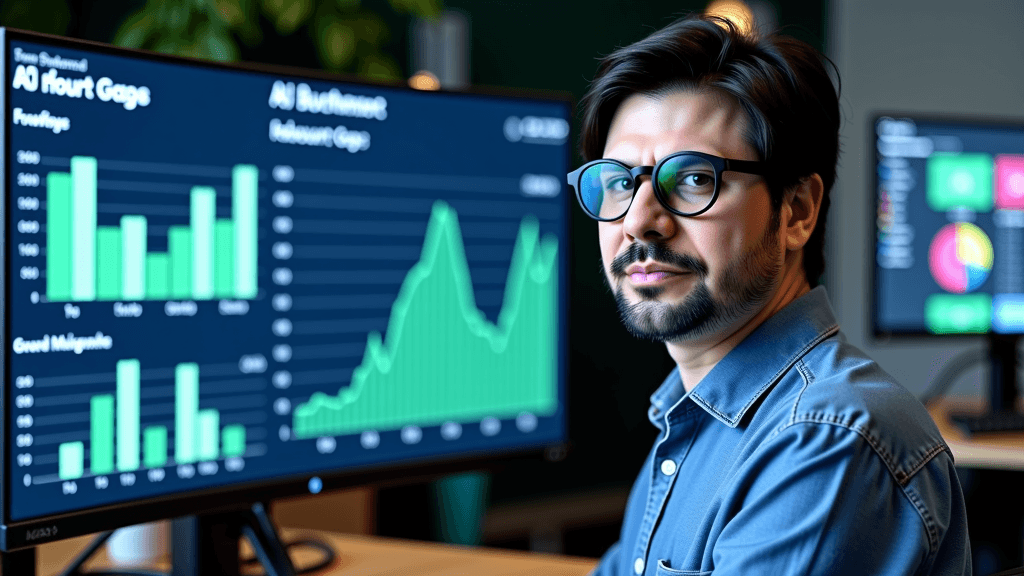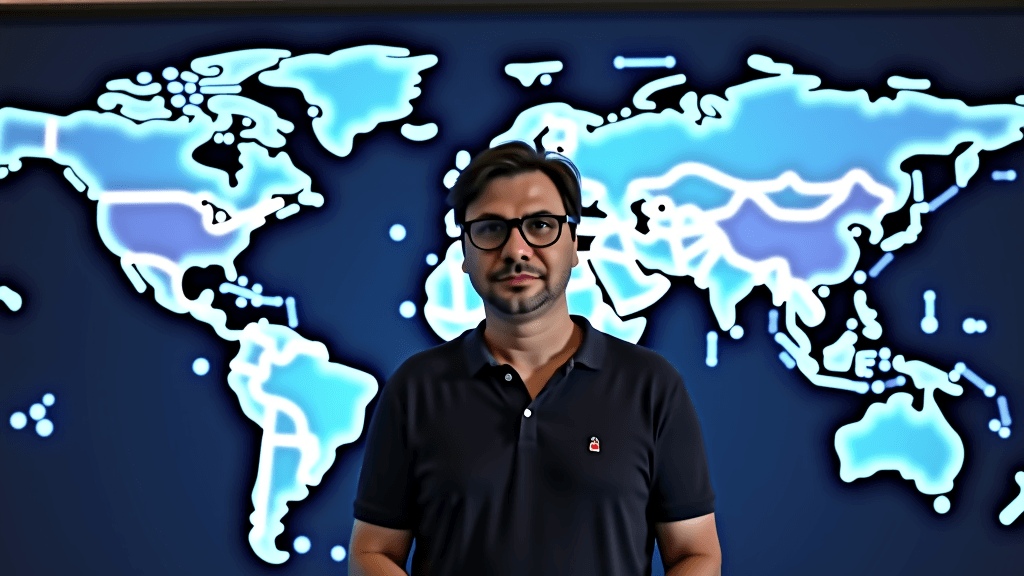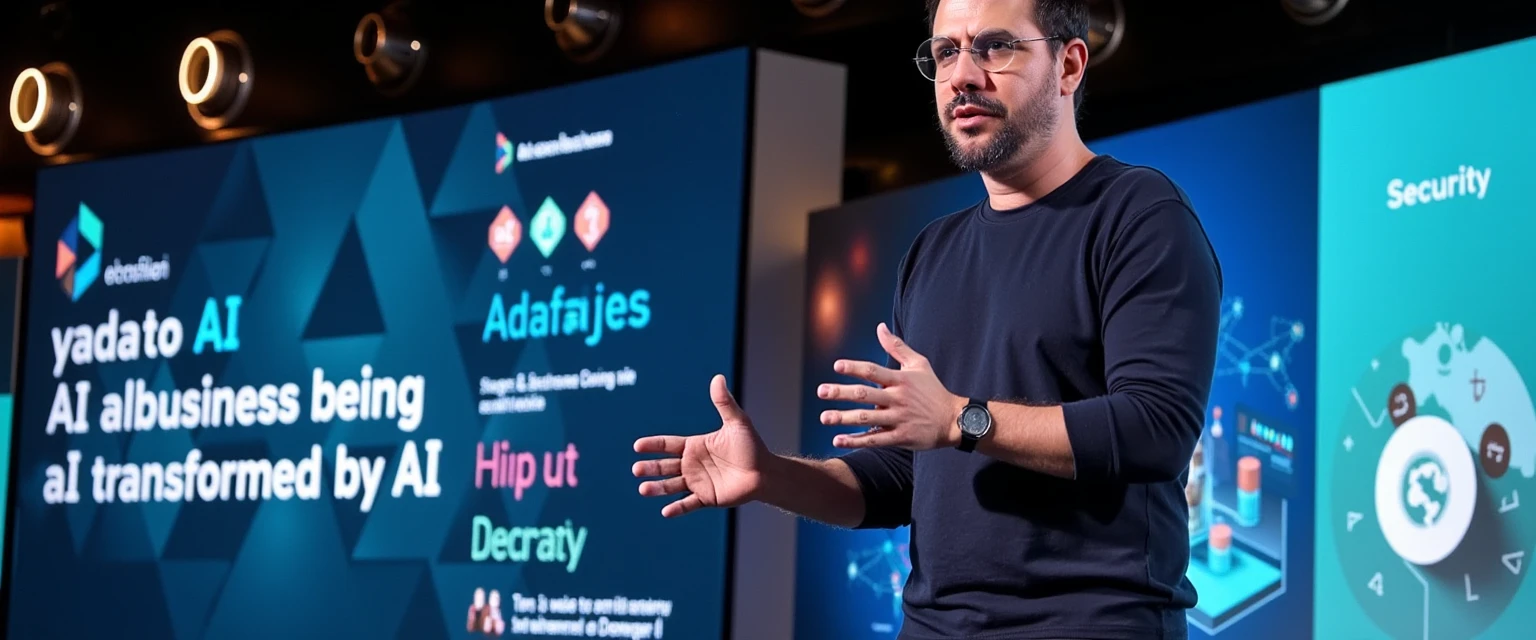AI Radar: Google Accused of 'Theft' as Brazilians Seek Virtual Therapy — The Outlook of the Last 24 Hours
May 23, 2025 | by Matos AI

The Quiet Transformation of Search: Google Under Fire
I’ve been following technological transformations closely for more than two decades, and I’ve rarely seen a change as profound as the one we’re witnessing now with the integration of AI into web searches. Google, a company that built its empire on traditional search algorithms, is at the center of a controversy that could redefine how we consume information on the internet.
In the last 24 hours, the news that caught my attention the most was the accusation made by the US Newspaper Publishers Association against Google. Danielle Coffey, a representative of the association, called Google's new AI search mode "theft", claiming that the company is using third-party content without offering adequate compensation to the original producers.
The crux of the matter is quite clear: by consolidating information from multiple sites into direct answers, Google is effectively eliminating the need to click on the original links. According to UOL, links to sources are hidden in this new format, potentially reducing traffic for news outlets that rely on these visits to generate revenue.
Join my WhatsApp groups! Daily updates with the most relevant news in the AI world and a vibrant community!
- AI for Business: focused on business and strategy.
- AI Builders: with a more technical and hands-on approach.
This transformation is not just a technical adjustment – it is a fundamental change in the digital information ecosystem. As an entrepreneur who has supported thousands of startups, I can say that we are facing a complete reconfiguration of the information value chain on the Internet.
The Digital Agent: New Frontier of Search
In parallel with this controversy, Google announced its vision to transform its search engine into a system of “digital agents.” According to CNN Brazil, these agents will be able to not only answer questions, but also perform complex tasks like buying tickets or making restaurant reservations, understanding the user's context, preferences and environment.
The traditional concept of “search” – typing in keywords and scouring links – is about to become obsolete. We are entering an era where the search interface becomes an intelligent assistant, capable of interpreting intent and taking action in the digital and physical world.
In my work with startups and corporate innovation, I have observed that this evolution represents both opportunities and threats. For new entrants, the visibility barrier becomes even higher when results are filtered by a proprietary AI system. On the other hand, unprecedented possibilities arise for companies that know how to position themselves in this new paradigm, developing integrations with these digital agents.
The AI Paradox in the Workplace: Between Stigma and Necessity
While major platforms are reshaping the search experience, AI adoption in the enterprise is facing surprising resistance. A Duke University study revealed a phenomenon I’ve observed in my consulting work: Those who use AI tools at work are often stigmatized as “lazy” or “less competent”.
According to the study published by Terra, this negative perception creates invisible barriers to technology adoption. Most revealing was a simulated hiring process, where managers were less likely to hire candidates who admitted to using AI.
This paradox perfectly illustrates the transitional moment we are living in. On the one hand, companies are investing billions in AI technologies; on the other, organizational cultures are still resisting its effective adoption. In my mentoring programs for executives, I often address this dissonance and how to overcome it through a change in corporate mindset.
The question is not whether we should use AI, but how we can use it to amplify our human capabilities, instead of replacing them. The real laziness, in my view, is refusing to learn new tools that can enhance our work.
Democratizing Access to AI: Google and Education
In a move that I consider strategic for both the educational ecosystem and the company itself, Google announced the free provision of the Google AI Pro plan for university students for 15 months. As reported by VEJA, this initiative will offer access to Gemini Pro and NotebookLM to students in Brazil, the US and other countries.
This movement occurs in parallel with the debate on the inclusion of AI in Brazilian school curricula. Experts interviewed by Olhar Digital argue that teaching AI should be a fundamental part of basic education, considering inequalities in access and the importance of preparing young people for an inevitably digital future.
As someone who founded the first neo-university in Latin America, I can say with conviction that AI literacy will become as essential as reading and writing. In my lectures on the future of education, I often emphasize that it is not just about teaching how to use specific tools, but about developing a critical understanding of how these technologies work, their ethical limitations, and their biases.
AI in Search of Meaning: From Virtual Therapy to Emotional Safety
A fascinating phenomenon that is emerging is the search for emotional support through AI. UOL report shows Brazilians satisfied with their “AI therapists”, with some reporting being moved by the advice they received.
This trend illustrates something I’ve been discussing in my future of work consulting: technology is filling gaps that go far beyond operational productivity. In a country where access to mental health care is limited by economic barriers and social stigmas, AI tools offer an affordable and unobtrusive alternative.
However, as experts warn in the report, this practice raises important questions about effectiveness, safety and privacy. The line between supplemental support and inadequate replacement for professional treatment is fine., and we need a mature debate about the ethical limits of these applications.
In my AI for Business WhatsApp groups, we’ve been discussing how these mental health applications represent just the tip of the iceberg of a larger phenomenon: the search for meaning and connection through technology. It’s a fascinating paradox that in an age of hyperconnectivity, many are seeking emotional comfort in algorithms.
Applied AI: From Climate Forecasts to Urban Security
The practical applications of AI continue to expand at a rapid pace. In Santo André, an AI system was implemented to prevent flooding, using real-time data and mathematical models to identify risks. According to CNN Brazil, the mayor highlighted that “AI is here to stay” and that it is essential for the safety of the population.
In parallel, Microsoft developed the Aurora model, which surpassed traditional methods in accuracy and efficiency for weather forecasts. According to VEJA, this model was trained with over a million hours of data and has the potential to revolutionize how we make climate predictions.
In the financial sector, the Febraban Tech event will expand its structure this year, reinforcing its focus on artificial intelligence. The Estadão reports that the event will address AI applications in the financial sector, with discussions on cybersecurity, digital assets and data analytics.
These practical implementations reflect what I have been advocating in my consultancies: AI has ceased to be an experimental technology and has become an essential tool in solving real problems. The real revolution is not in research laboratories, but in applying these technologies to solve real societal challenges.
Ethical and Regulatory Challenges: Between Dangerous Content and Legal Frameworks
The rise of AI brings with it increasingly pressing ethical and regulatory issues. Research from Enkrypt AI has revealed that AI models generated dangerous content in 68% of the tests performed. According to the Tribuna de Minas, the study highlights the need for security and smart filters, especially in sensitive contexts.
On the regulatory front, Goiás announced a pioneering regulatory framework for AI. Valor Econômico reports that the governor highlighted differences in relation to the legislation under discussion in the National Congress, evidencing the state's intention to become a technological hub.
As someone who has actively participated in advocacy initiatives for pro-entrepreneurship public policies through the Dínamo Association, I can say that Brazil is at a crucial moment in defining its technological future. Adequate regulation can both catalyze and stifle innovation, and we need a balance that protects society without impeding technological advancement.
In my talks on artificial intelligence, I often address the concept of “responsible innovation” – the idea that we need to move quickly, but with a careful eye on the social, economic and ethical impacts of the technologies we develop. The future of AI in Brazil will depend much more on our ability to balance innovation and responsibility than on our own technical capabilities..
The Future of Digital Monetization: YouTube and AI in Ads
One topic that has received less attention but could have profound impacts on the digital ecosystem is how AI is transforming monetization models. YouTube, for example, plans to use AI to improve the placement of ads on its videos. According to StartSe, the initiative seeks to identify the best times to insert advertising using the Gemini model.
This application perfectly illustrates what I’ve been calling “invisible AI” – technologies that operate behind the scenes, optimizing experiences without necessarily drawing attention to themselves. In my consulting work with media and marketing startups, I’ve observed that the most valuable AI applications are often not the most spectacular ones, but those that solve specific problems efficiently.
The YouTube case also highlights a dilemma that permeates the entire digital ecosystem: how to balance monetization and user experience. AI could be the key to solving this equation, enabling more sophisticated and less intrusive revenue models..
Final Reflections: Navigating the Future of AI in Brazil
Looking at the panorama of the last 24 hours, it is clear that we are living a turning point in the evolution of AI in Brazil and worldwide. The tensions between innovation and ethics, between monopolization and democratization, between practical applications and potential risks, define the current scenario.
As someone who has been following and actively participating in this ecosystem for more than two decades, I can say that the decisions we make now – as entrepreneurs, investors, policymakers and citizens – will profoundly shape the future of technology in our country.
In my mentoring sessions with entrepreneurs and executives, I have emphasized three fundamental principles for navigating this complex scenario:
- Critical adoption: Implement AI technologies not as an end, but as a means to solve real problems;
- Technological literacy: Invest in a deep understanding of these technologies, beyond the simple use of tools;
- Ethical governance: Establish clear principles and robust processes to ensure AI is used responsibly.
Brazil has a unique opportunity to position itself as a leader in responsible innovation, combining our natural creativity and cultural diversity with an ethical and inclusive approach to technology. To do so, we need to overcome both naive techno-optimism and paralyzing pessimism, adopting a pragmatic and solutions-oriented stance.
In my WhatsApp groups on AI and business, we have been developing practical cases and sharing experiences that demonstrate the transformative potential of these technologies when applied with a clear purpose. If you are interested in being part of this learning and exchange community, or are looking for guidance on implementing AI strategies in your business, I invite you to get in touch.
The future of AI in Brazil is being written now, and we all have a role to play in this story. What role will you choose?
✨Did you like it? You can sign up to receive 10K Digital's newsletters in your email, curated by me, with the best content about AI and business.
➡️ Join the 10K Community here
RELATED POSTS
View all



